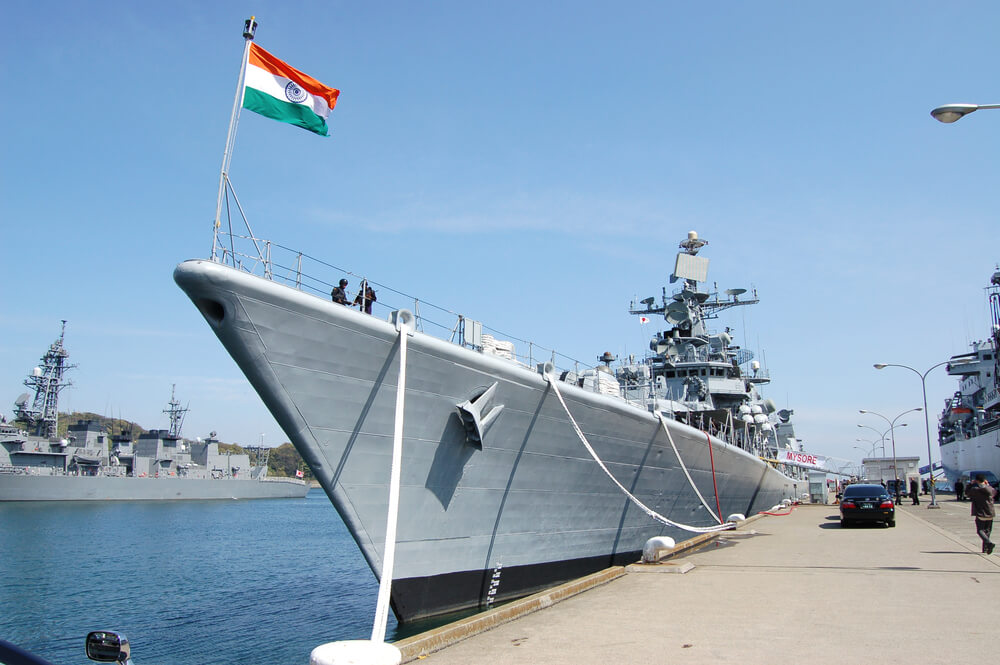Defence and security remain the primary areas of cooperation between India and France, to the delight of all those searching for a way to contain China's increasingly aggressive influence in the Indo-Pacific region.
During last week's French President Emmanuel Macron's visit to India, the 2 countries signed 9 agreements, 4 of which regard security, defence industry and space technology.
One of them, the military-industrial road map, envisages a partnership to increase the capacity of the Indian defence industry over the next 25 years.
France will meet India's needs to build its capacity for producing aircraft engines, submarines, aircraft, and space technology.
This was Macron's third visit to India as president. The visit was given royal status treatment, and he was the guest of honour at the 75th Republic Day.
His relationship with Indian PM Narendra Modi, as he said himself, has a "special chemistry", so the 2 leaders ended their meetings with good results for both countries.
Security autonomy
India relies heavily on France in its security development plans. This is partly a result of the tradition regarding France being one of India's top 5 arms suppliers.
However, the deals go beyond the level of buying and selling and are increasingly focused on co-production, from which India gets technology, employment, and equal participation in projects.
France, in turn, has secure supply chains, a significantly increasing market for its military-industrial complex, and a security alliance with a regional power.
For both India and France, safe navigation on the most frequented sea routes in the region is priority
The traditional positions of security autonomy in both countries, that is, their policy to act independently in the region as much as possible and not under the US security umbrella, are at the basis of this cooperation.
Last week's meeting between President Macron and PM Modi confirmed the continuation of that direction based on inclusiveness, developing broad alliances in the Indo-Pacific for interests that coincide.
For both India and France, it ensures safe navigation on the most frequented sea routes in the region.
Effective joint patrolling and surveillance
As the first EU country to announce a strategy for the Indo-Pacific in 2018, France encouraged the rest of the bloc to define in more detail their interests and plans regarding the region, which soon became the focus of security concerns.
France was expected to lead in this respect within the EU, given that it still has territories in the Indian Ocean ( Réunion and the Scattered Islands) and the Pacific (New Caledonia and French Polynesia).
Its interest in preserving the security of these territories, and about 1.5 million of its citizens living there, is an additional key to strengthening security ties with India, which aspires to be a more significant partner of small island territories.
Macron and PM Modi have confirmed that they were satisfied with the effectiveness of joint maritime patrols and surveillance in the region
Macron and PM Modi have confirmed that they were satisfied with the effectiveness of joint maritime patrols and surveillance in the region while stressing their openness to other "like-minded countries" joining them in this activity.
The 2 leaders confirmed that they do not want their joint influence in the region limited to security issues. They announced that they will work together to support island states in protecting and remedying the consequences of climate change, which is the number one issue throughout the Indo-Pacific territories.
France has strengthened its position in the Indo-Pacific
Macron's visit to India has strengthened France's position in the Indo-Pacific after it was shaken more than 2 years ago by Australia's sudden cancellation of an order for a fleet of French submarines worth €55 billion.
Paris and Canberra ended the "Cold War" last December when the 2 countries signed an agreement on mutual access and use of military facilities in the Pacific region and joint military activities.
The French approach to the Indo-Pacific, as demonstrated by Macron's visit, will be more suited to the model of joint regional action with India in the future than joining other US-led security associations such as the Quad (US, India, Australia, Japan) or AUKUS (Australia, UK, US).
 India regards the partnership with France as providing a satisfactory level of cooperation with Western actors, sufficient to maintain its security autonomy
India regards the partnership with France as providing a satisfactory level of cooperation with Western actors, sufficient to maintain its security autonomy
On the other hand, India regards the partnership with France as providing a satisfactory level of cooperation with Western actors, sufficient to maintain its security autonomy, leaving it open to forming alliances with any country with similar interests in the region and, most importantly, limiting Chinese influence.
For PM Modi and his Bharatiya Janata Party (BJP), Emmanuel Macron's visit will also represent a boost ahead of the general elections next April.
Even though they are the favourite, the promotion of the alliance with France pleases the Indians, partly because of good historical experiences and partly because of significant joint development plans.
Those plans are mutually beneficial, not burdened by the pressures of value judgments and mutual adjustment of policies. For India and France, this is enough.